Vintage fantasy science fiction pulp magazine Famous Fantastic Mysteries w- Fantastic Novels August 1941
$24.00
This is a “good” vintage “standard” format pulp magazine published in 1941, cover date August, cover price 15 cents, 128 newsprint pages.
Includes the complete 112 page novel by A. Merritt “The Metal Monster”.
Cover art by Virgil Finlay.
Spine is solid, no loose or folded pages, no writing internally, no tears, edges are just ever so mildly tanned. Cover colors are bright and uniform, front and back, with the back cover showing just some light tanning to the white background along the spine edge. Cover edges and overhangs are bumped, with many small closed tears and some chipping. There is one 1 1/2″ closed tear at the bottom of the front cover near the outer edge lower corner (see images). Name neatly penciled in the yellow background of the cover masthead along with a date (?) and “Read”, otherwise no discerned writing externally or internally.
Overall, a still very pleasing copy, with great cover art by one of the masters of the era.
See the accompanying images for table of contents & full condition details.
Will ship promptly, carefully packaged, with tracking.
1 in stock
Additional information
| Weight | .5 oz |
|---|---|
| Dimensions | 10 × 7 × 1 in |
Related products
Clifford Simak “Shakespeare’s Planet” 1982 Vintage paperback Pastoral science fiction
Very, very clean, barely a sign that it's been read. Tinted textblock edges are uniform and bright all around, not thumbed or soiled. Covers close square and tight. Spine is free of creasing or rolling. A little bit of edge wear at the covers' corners very tips. No loose, torn or folded pages, no writing. Really nice! See the accompanying images for table of contents & full condition details. Will ship promptly, carefully packaged, with tracking.
Clifford Simak “Shakespeare’s Planet” 1982 Vintage paperback Pastoral science fiction
Very, very clean, barely a sign that it's been read. Tinted textblock edges are uniform and bright all around, not thumbed or soiled. Covers close square and tight. Spine is free of creasing or rolling. A little bit of edge wear at the covers' corners very tips. No loose, torn or folded pages, no writing. Really nice! See the accompanying images for table of contents & full condition details. Will ship promptly, carefully packaged, with tracking.
Vintage Sci-Fi Paperback: My Name is Legion by Roger Zelazny, 1981 Edition
Shows slight minimal aging and a little edge wear on covers, but no significant flaws (no writing, tags, marks, loose, torn or folded pages). Certainly a great addition to a vintage science fiction collection and a worthy gift! See the accompanying images for full condition details. Will ship promptly, carefully packaged, with tracking. About the book: "My Name is Legion" by Roger Zelazny is a "science fiction" story line that combines cyberpunk elements with existential depth. The book consists of three interconnected novellas ("The Eve of Ragnarok," "Kjwalll'kje'k'koothaïlll'kje'k," and "'Home is the Hangman") that follow a futuristic investigator known only as "Legion"—a man with no legal identity who manipulates global surveillance systems to solve crimes. The novellas: "The Eve of RUMOKO" – The protagonist must uncover a saboteur on a project using nuclear explosives to create artificial islands. "'Kjwalll'kje'k'koothai'lll'kje'k" – Set at a research station in the Bahamas, the hero investigates a diver’s mysterious death, possibly involving dolphins. "Home Is the Hangman" – A sentient robot, lost years before, may have returned to Earth to kill its creators. These stories are linked by their protagonist and themes of identity, surveillance, and the ethical dilemmas of technology. They are not directly connected to Zelazny’s other famous works like "The Last Defender of Camelot" or "For a Breath I Tarry". Why You Should Read It: 1) Cyberpunk Before Cyberpunk – Zelazny’s vision of a hyper-surveilled society predates Neuromancer and other cyberpunk classics, making it a fascinating proto-cyberpunk gem. 2) Philosophical & Psychological Depth – The protagonist grapples with identity, free will, and the nature of humanity, themes that remain deeply relevant in today’s AI-driven world. 3) Award-Winning Excellence – The final novella, "'Home is the Hangman," won both the Nebula in 1976 and Hugo 1976 for Best Novella. Also nominated for the Locus Award for Best Collection in 1977. If You Enjoyed These, then "My Name is Legion" is likely to be in your wheelhouse: >>John Brunner – The Shockwave Rider (for its take on computer networks and identity) >>Alfred Bester – The Demolished Man (for noir SF with a psychological edge) >>Philip K. Dick – A Scanner Darkly (for its themes of surveillance and shifting identity) Interesting Facts: The second story’s title, "'Kjwalll'kje'k'koothai'lll'kje'k," is intentionally unpronounceable, reflecting the communication barrier between humans and dolphins—a clever nod to the story’s central mystery. The title "My Name is Legion" is a biblical reference, taken from the Gospel of Mark, where a demon identifies himself as "Legion, for we are many." Zelazny chose this title to reflect the protagonist's fragmented identity and his ability to assume different roles and personas. Relevance Today: The themes explored in "My Name is Legion," such as the impact of technology on society and the nature of identity, are still relevant today. Zelazny's vision of a future where technology has blurred the lines between human and machine is both fascinating and cautionary.
Vintage Sci-Fi Paperback: My Name is Legion by Roger Zelazny, 1981 Edition
Shows slight minimal aging and a little edge wear on covers, but no significant flaws (no writing, tags, marks, loose, torn or folded pages). Certainly a great addition to a vintage science fiction collection and a worthy gift! See the accompanying images for full condition details. Will ship promptly, carefully packaged, with tracking. About the book: "My Name is Legion" by Roger Zelazny is a "science fiction" story line that combines cyberpunk elements with existential depth. The book consists of three interconnected novellas ("The Eve of Ragnarok," "Kjwalll'kje'k'koothaïlll'kje'k," and "'Home is the Hangman") that follow a futuristic investigator known only as "Legion"—a man with no legal identity who manipulates global surveillance systems to solve crimes. The novellas: "The Eve of RUMOKO" – The protagonist must uncover a saboteur on a project using nuclear explosives to create artificial islands. "'Kjwalll'kje'k'koothai'lll'kje'k" – Set at a research station in the Bahamas, the hero investigates a diver’s mysterious death, possibly involving dolphins. "Home Is the Hangman" – A sentient robot, lost years before, may have returned to Earth to kill its creators. These stories are linked by their protagonist and themes of identity, surveillance, and the ethical dilemmas of technology. They are not directly connected to Zelazny’s other famous works like "The Last Defender of Camelot" or "For a Breath I Tarry". Why You Should Read It: 1) Cyberpunk Before Cyberpunk – Zelazny’s vision of a hyper-surveilled society predates Neuromancer and other cyberpunk classics, making it a fascinating proto-cyberpunk gem. 2) Philosophical & Psychological Depth – The protagonist grapples with identity, free will, and the nature of humanity, themes that remain deeply relevant in today’s AI-driven world. 3) Award-Winning Excellence – The final novella, "'Home is the Hangman," won both the Nebula in 1976 and Hugo 1976 for Best Novella. Also nominated for the Locus Award for Best Collection in 1977. If You Enjoyed These, then "My Name is Legion" is likely to be in your wheelhouse: >>John Brunner – The Shockwave Rider (for its take on computer networks and identity) >>Alfred Bester – The Demolished Man (for noir SF with a psychological edge) >>Philip K. Dick – A Scanner Darkly (for its themes of surveillance and shifting identity) Interesting Facts: The second story’s title, "'Kjwalll'kje'k'koothai'lll'kje'k," is intentionally unpronounceable, reflecting the communication barrier between humans and dolphins—a clever nod to the story’s central mystery. The title "My Name is Legion" is a biblical reference, taken from the Gospel of Mark, where a demon identifies himself as "Legion, for we are many." Zelazny chose this title to reflect the protagonist's fragmented identity and his ability to assume different roles and personas. Relevance Today: The themes explored in "My Name is Legion," such as the impact of technology on society and the nature of identity, are still relevant today. Zelazny's vision of a future where technology has blurred the lines between human and machine is both fascinating and cautionary.
For the Sci Fi Fan “I, Robot” Vintage paperback Isaac Asimov 1970 printing
Mild edge and surface wear on covers, very minimal signs of reading use. Text block is square, closes tightly. A date stamp on the outer text block edge, reading "Apr 28 1975" - likely from a used book store back in the day. A very subtle crease in the spine, not color breaking. Original cover price on front cover and spine blacked out, otherwise no marks or writing. No loose, torn or folded pages. Very presentable 55 year old vintage paperback! Really nice vintage copy! See accompanying images for full condition details. Enter the groundbreaking world of Isaac Asimov's I, Robot, the seminal 1950 collection that forever changed how we imagine artificial intelligence. Through nine interconnected short stories framed by the reminiscences of Dr. Susan Calvin, the pioneering robopsychologist at U.S. Robots and Mechanical Men, Asimov introduces his revolutionary Three Laws of Robotics—the ethical framework that would influence science fiction for generations. From "Robbie," the gentle nursemaid robot who forms an unbreakable bond with a young girl, to the chilling implications of "The Evitable Conflict," where super-intelligent Machines quietly manipulate humanity's future, each tale explores the complex moral landscape where human and artificial minds intersect. Meet Speedy, trapped in a logical loop on Mercury; Herbie, the telepathic robot driven to madness by conflicting imperatives; and Stephen Byerley, the politician whose humanity itself becomes the central mystery. Asimov's robots aren't the rampaging monsters of pulp fiction—they're thoughtful, sometimes flawed beings whose dilemmas mirror our own deepest questions about consciousness, free will, and what it truly means to be human. This vintage collection remains startlingly relevant as we stand on the threshold of real artificial intelligence, making it essential reading for anyone fascinated by the ethical challenges of our technological future. Will ship promptly, carefully packaged.
For the Sci Fi Fan “I, Robot” Vintage paperback Isaac Asimov 1970 printing
Mild edge and surface wear on covers, very minimal signs of reading use. Text block is square, closes tightly. A date stamp on the outer text block edge, reading "Apr 28 1975" - likely from a used book store back in the day. A very subtle crease in the spine, not color breaking. Original cover price on front cover and spine blacked out, otherwise no marks or writing. No loose, torn or folded pages. Very presentable 55 year old vintage paperback! Really nice vintage copy! See accompanying images for full condition details. Enter the groundbreaking world of Isaac Asimov's I, Robot, the seminal 1950 collection that forever changed how we imagine artificial intelligence. Through nine interconnected short stories framed by the reminiscences of Dr. Susan Calvin, the pioneering robopsychologist at U.S. Robots and Mechanical Men, Asimov introduces his revolutionary Three Laws of Robotics—the ethical framework that would influence science fiction for generations. From "Robbie," the gentle nursemaid robot who forms an unbreakable bond with a young girl, to the chilling implications of "The Evitable Conflict," where super-intelligent Machines quietly manipulate humanity's future, each tale explores the complex moral landscape where human and artificial minds intersect. Meet Speedy, trapped in a logical loop on Mercury; Herbie, the telepathic robot driven to madness by conflicting imperatives; and Stephen Byerley, the politician whose humanity itself becomes the central mystery. Asimov's robots aren't the rampaging monsters of pulp fiction—they're thoughtful, sometimes flawed beings whose dilemmas mirror our own deepest questions about consciousness, free will, and what it truly means to be human. This vintage collection remains startlingly relevant as we stand on the threshold of real artificial intelligence, making it essential reading for anyone fascinated by the ethical challenges of our technological future. Will ship promptly, carefully packaged.
Cheesy vintage sci fi “Possess & Conquer” First edition 1975 vintage paperback Charles Moll cover
First edition. Solid spine. No loose, torn, or folded pages. No writing. Some edge and surface wear on covers, text block bright, unspotted, not soiled. Covers are square and close tightly. Crazy cover art by the same artist who did such classics as Logan's Run, The Lathe of Heaven, and The God's Themselves. See the accompanying images for table of contents & full condition details. Will ship promptly, carefully packaged, with tracking.
Cheesy vintage sci fi “Possess & Conquer” First edition 1975 vintage paperback Charles Moll cover
First edition. Solid spine. No loose, torn, or folded pages. No writing. Some edge and surface wear on covers, text block bright, unspotted, not soiled. Covers are square and close tightly. Crazy cover art by the same artist who did such classics as Logan's Run, The Lathe of Heaven, and The God's Themselves. See the accompanying images for table of contents & full condition details. Will ship promptly, carefully packaged, with tracking.
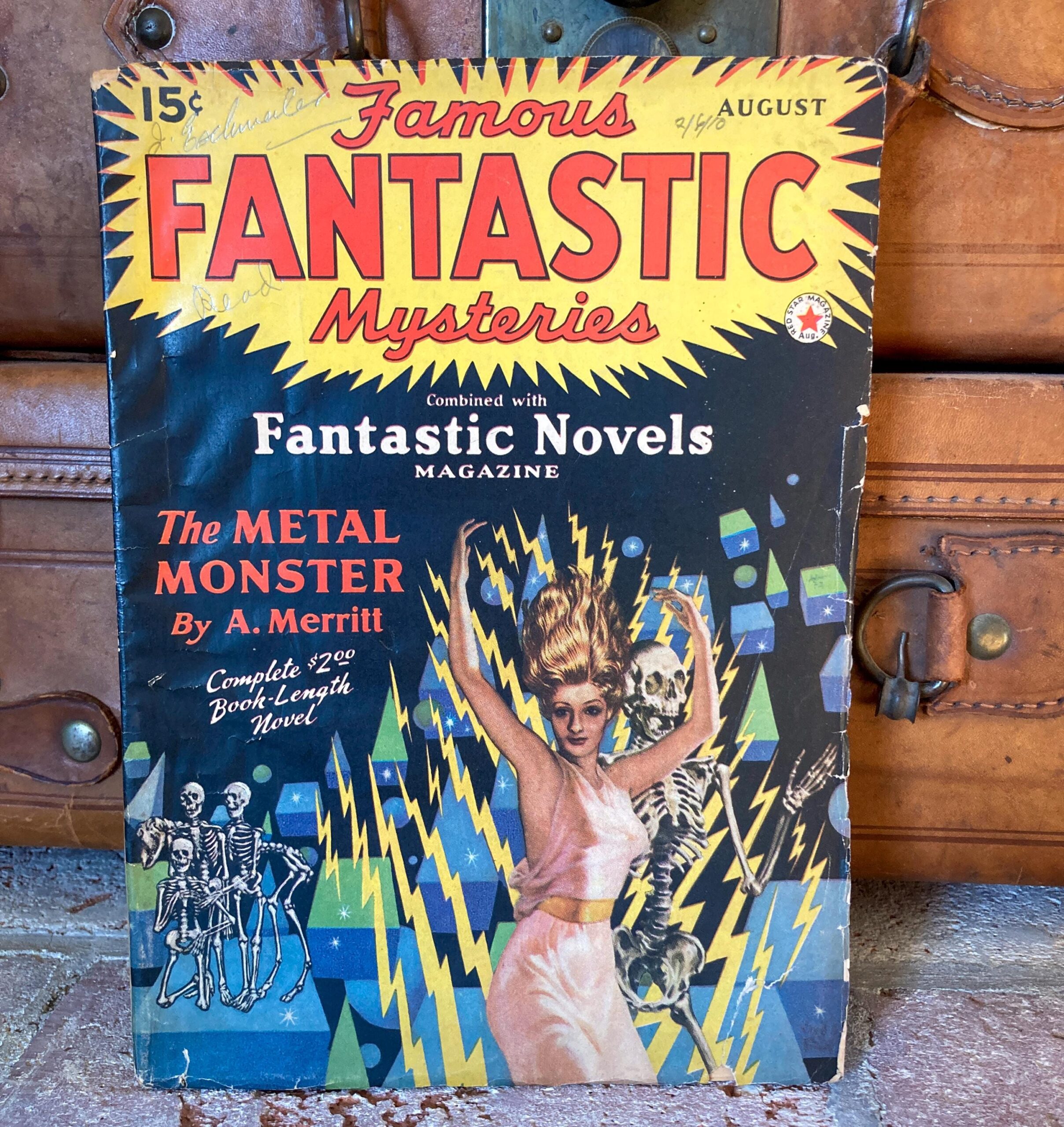

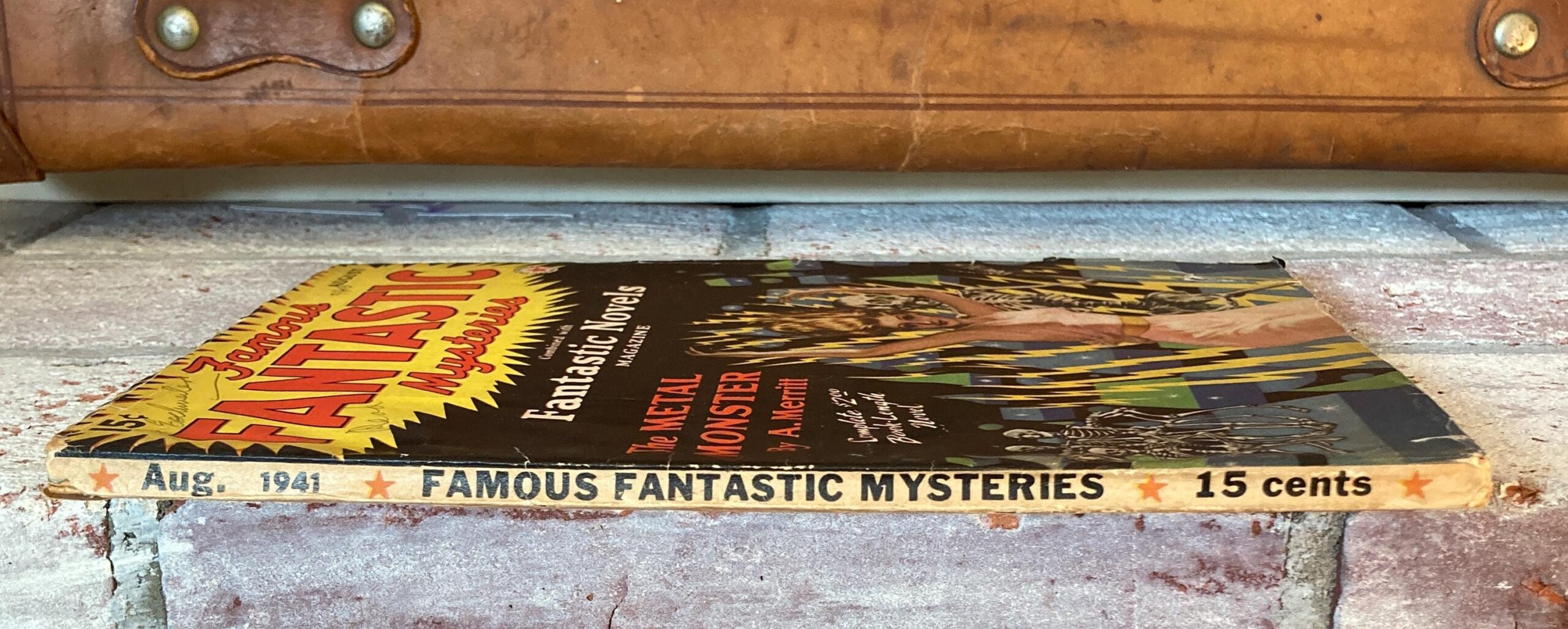
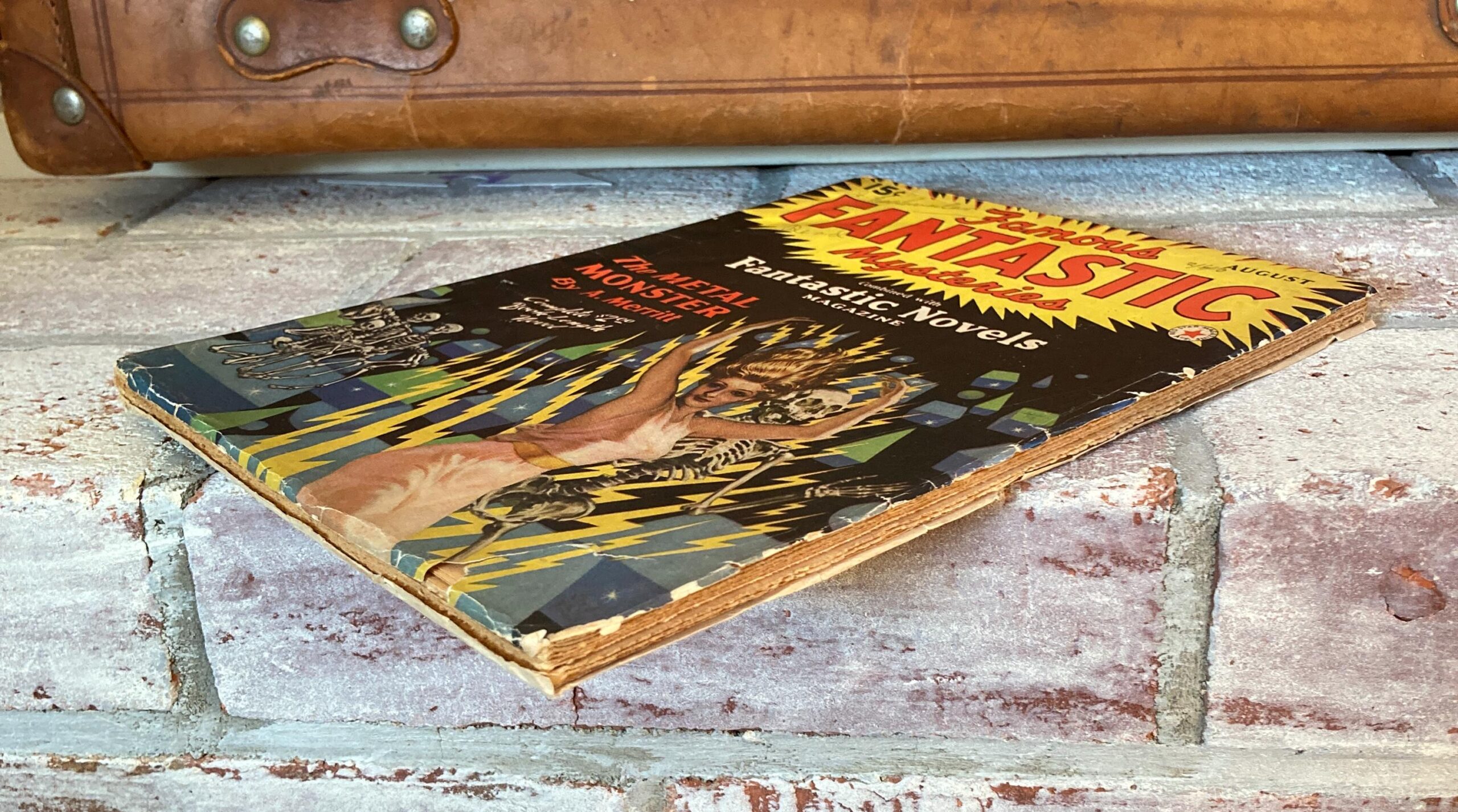
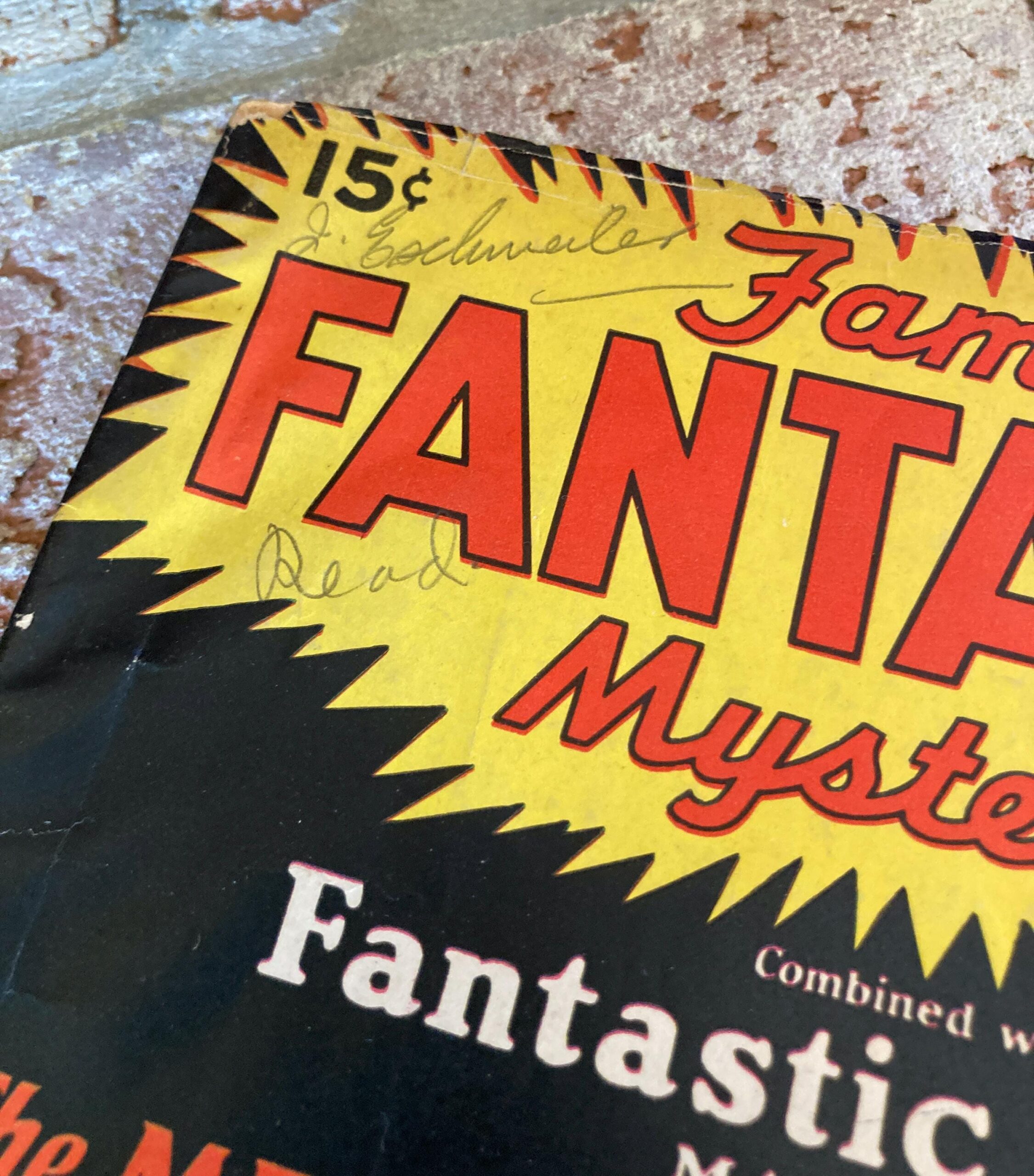
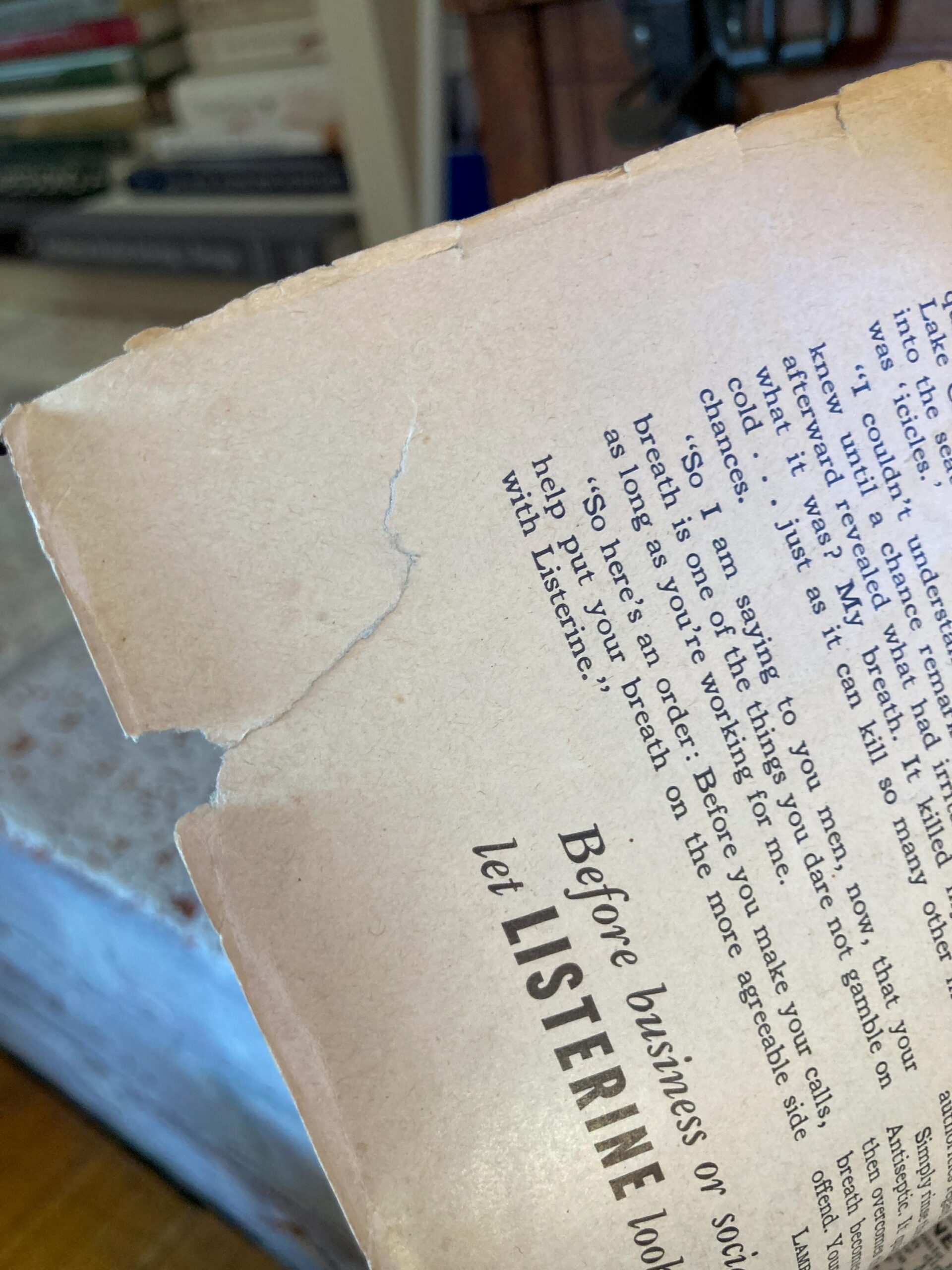
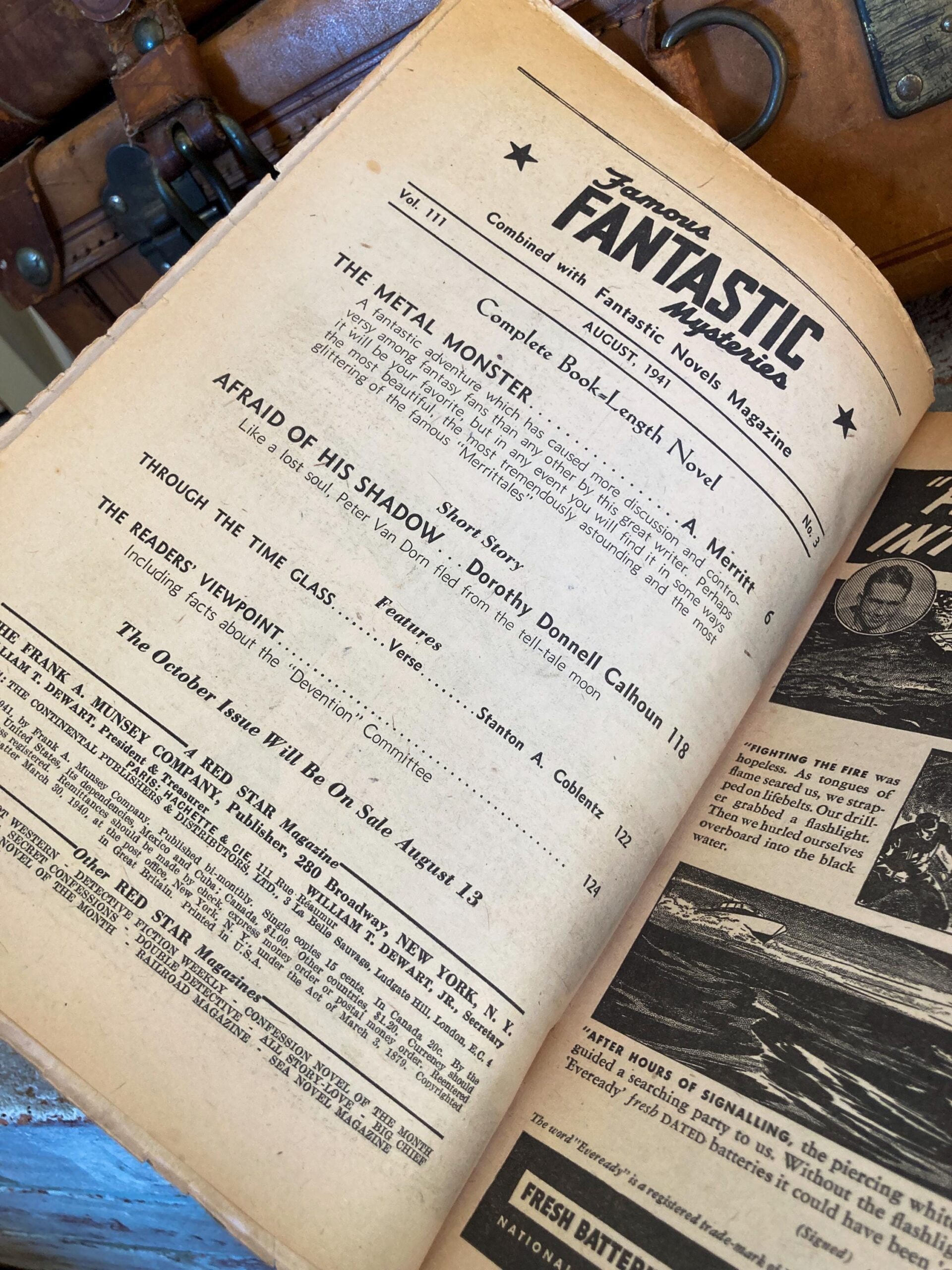
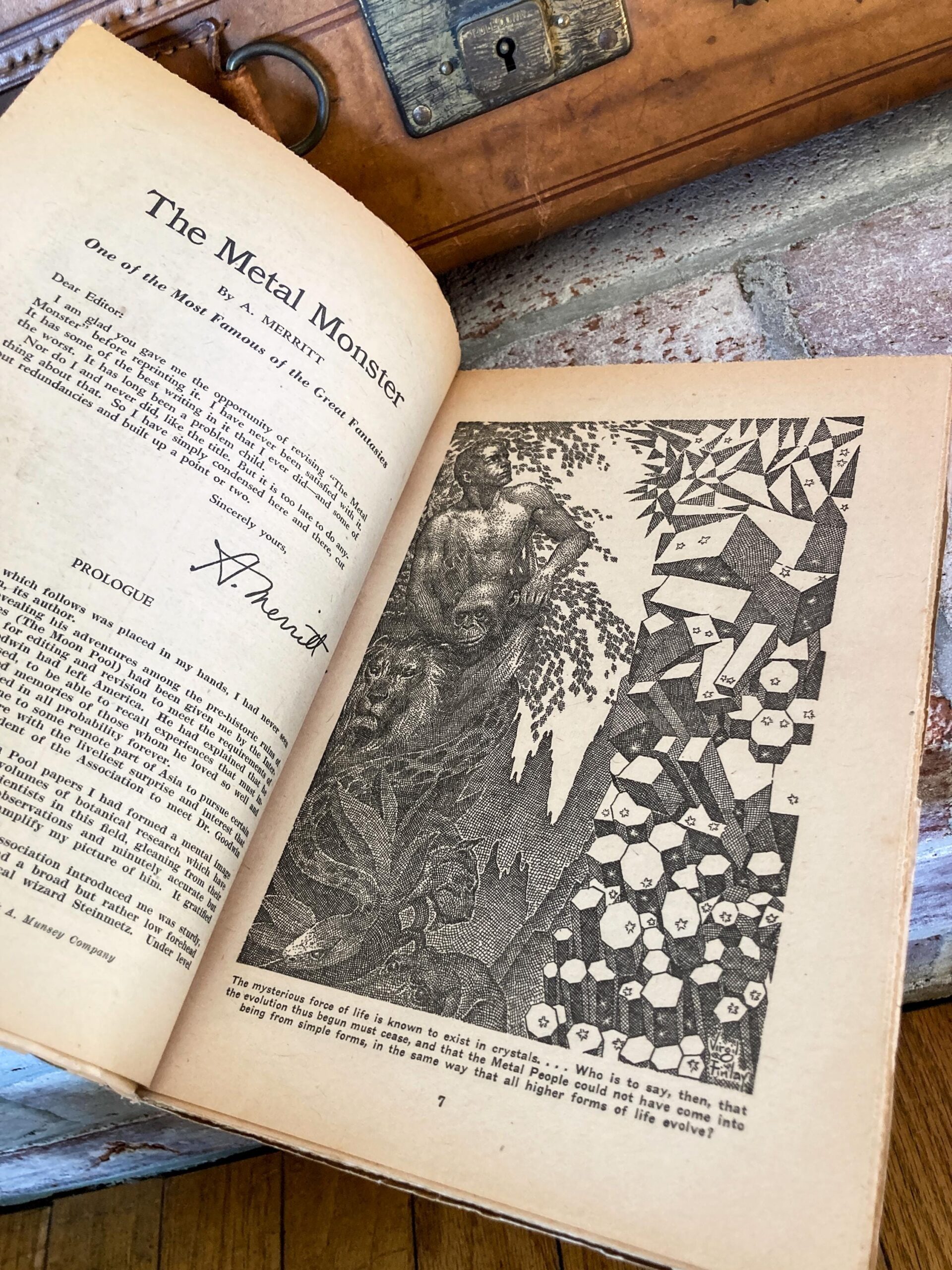
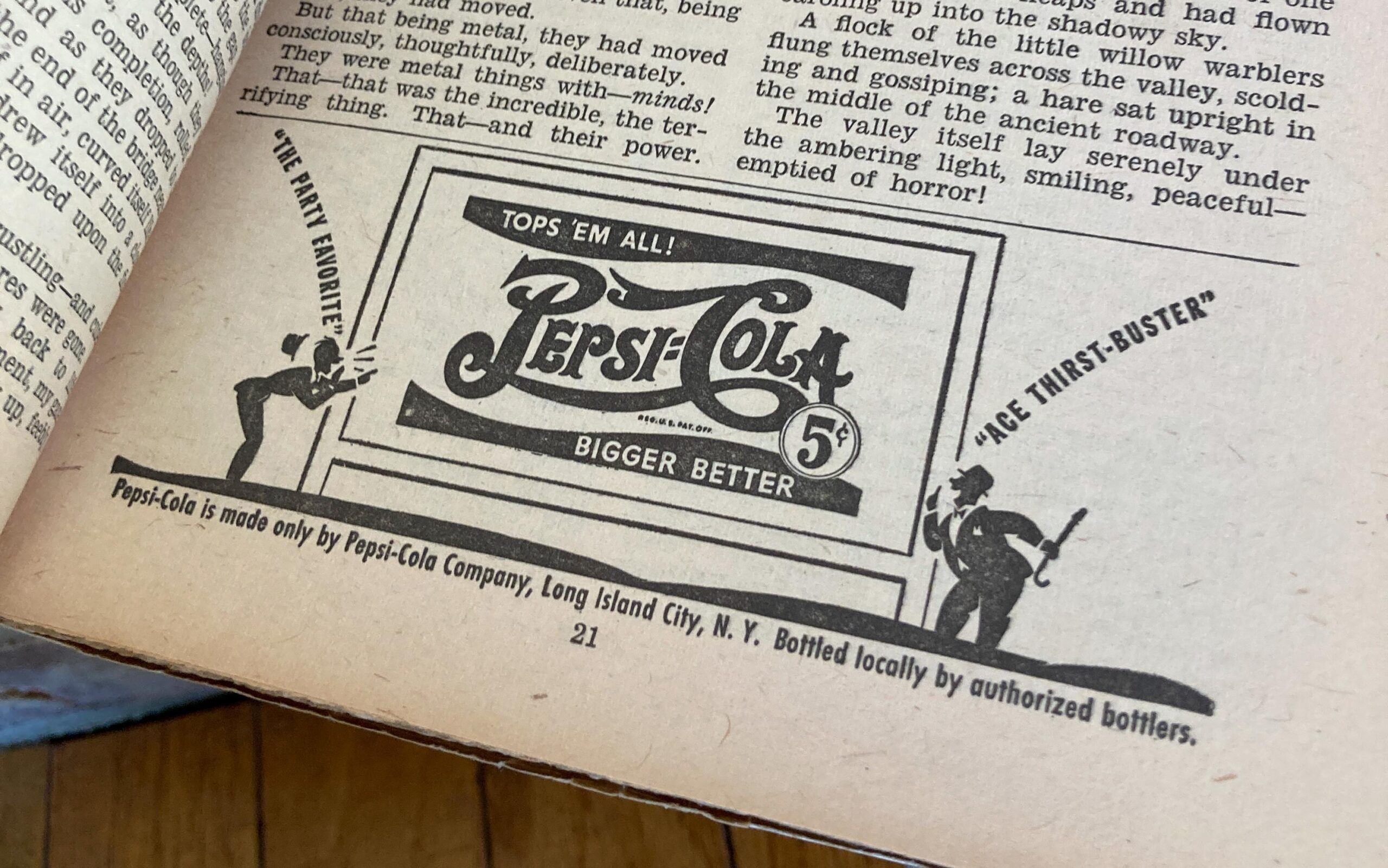
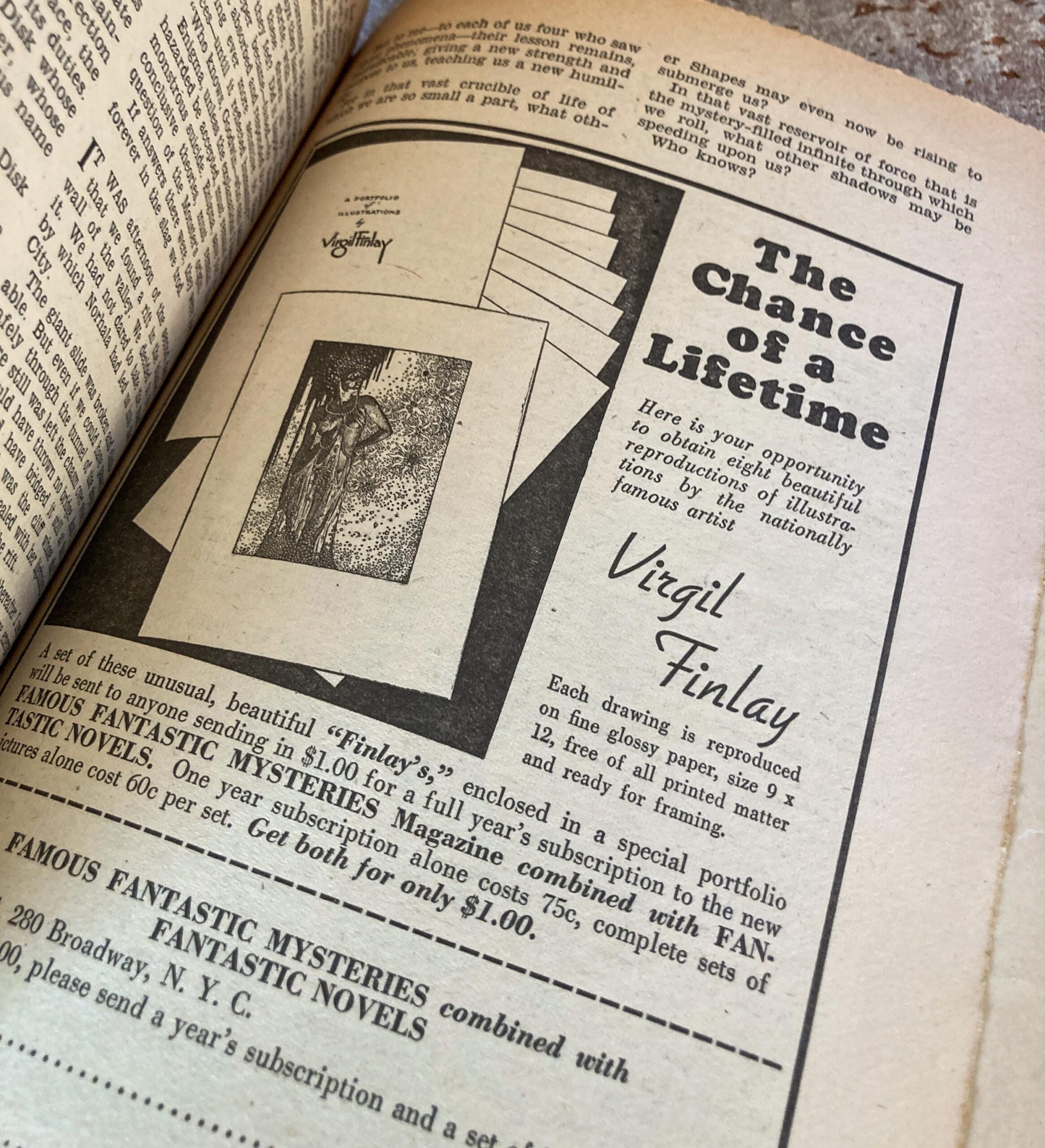
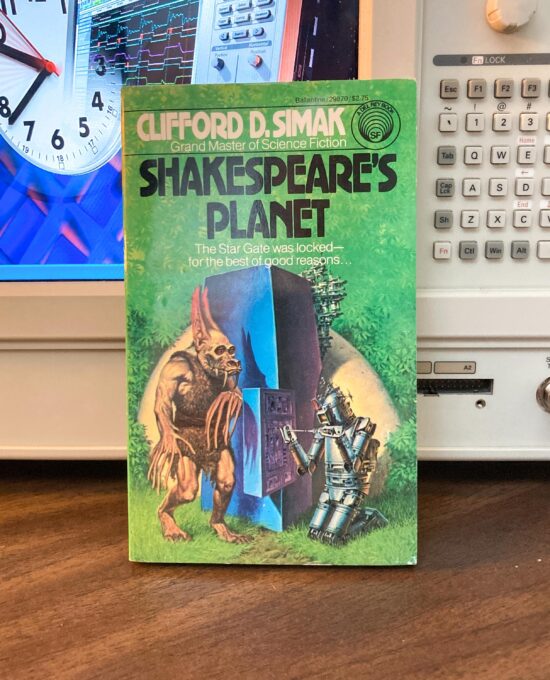
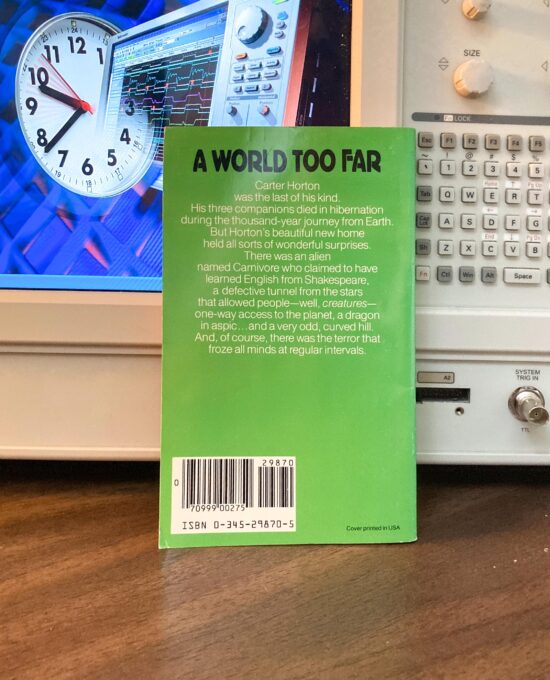
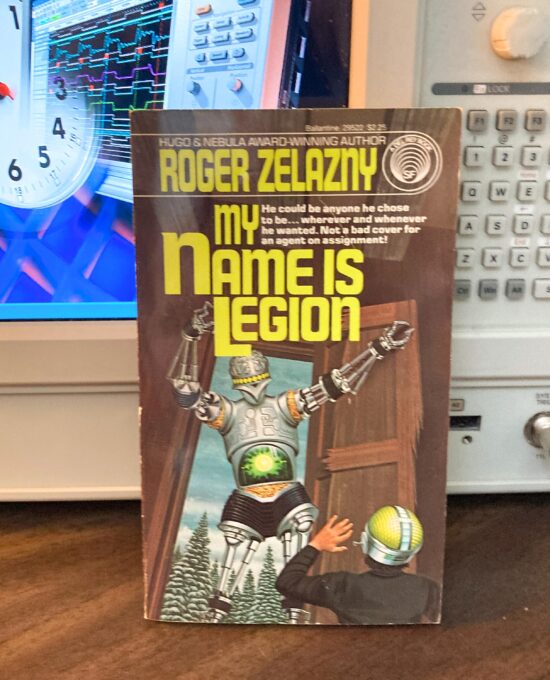
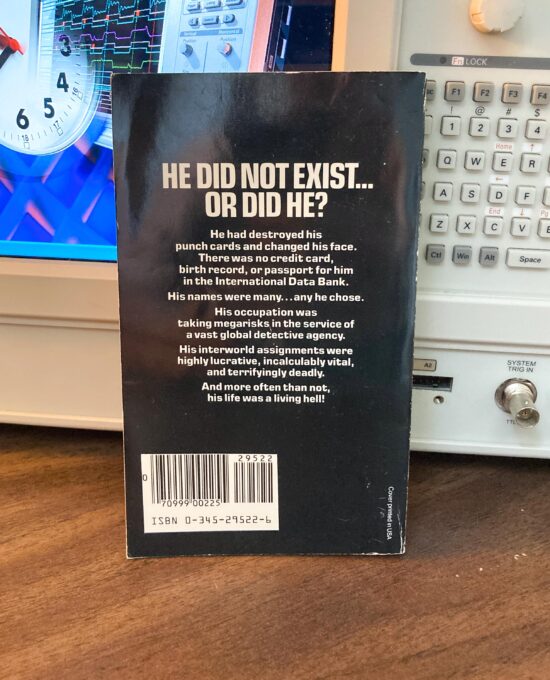
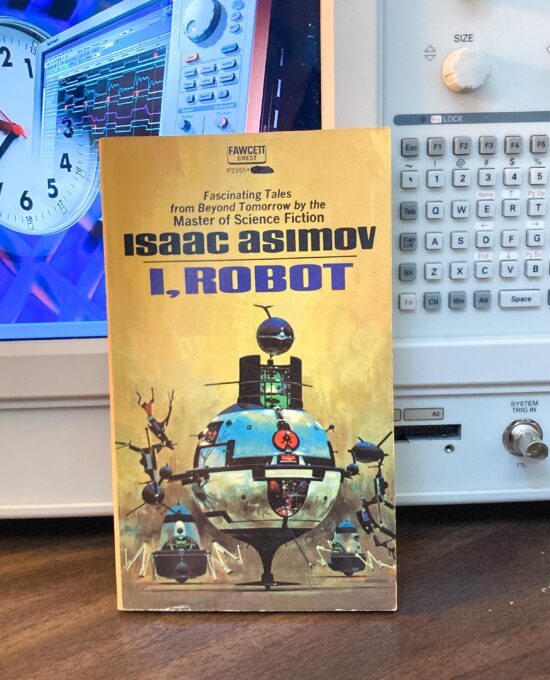
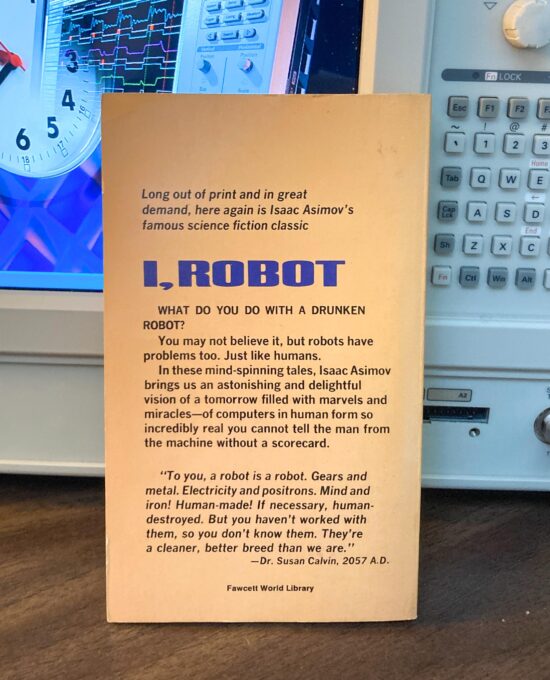
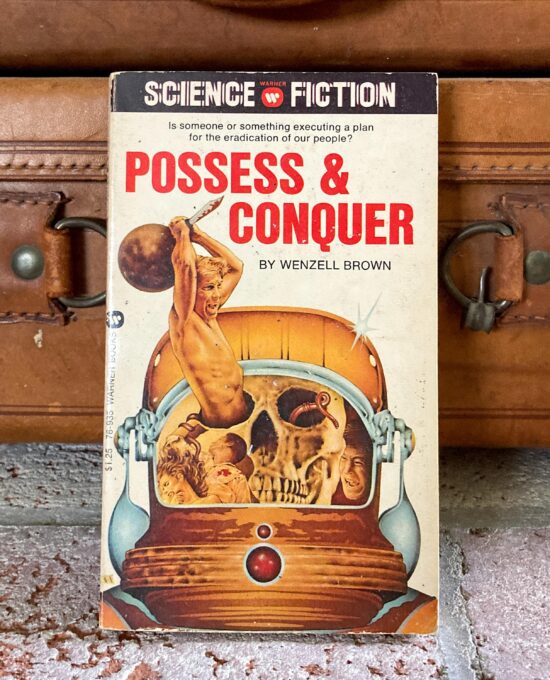
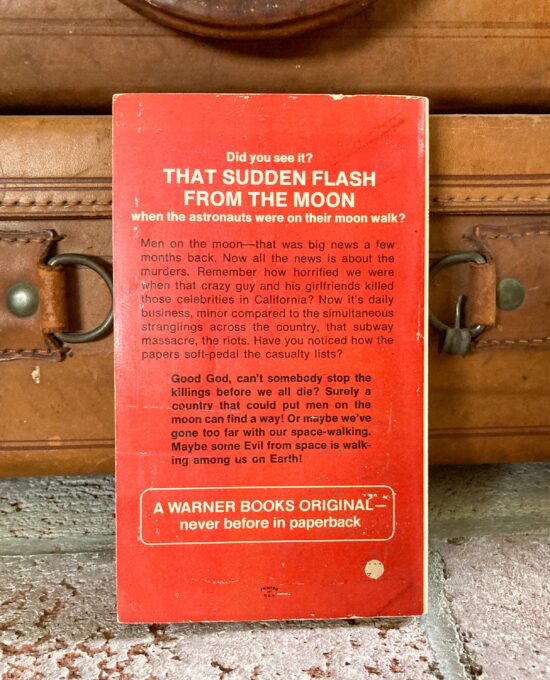


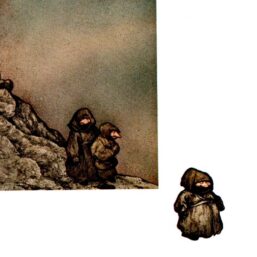

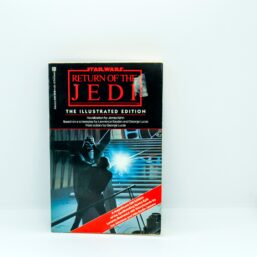
Reviews
There are no reviews yet.